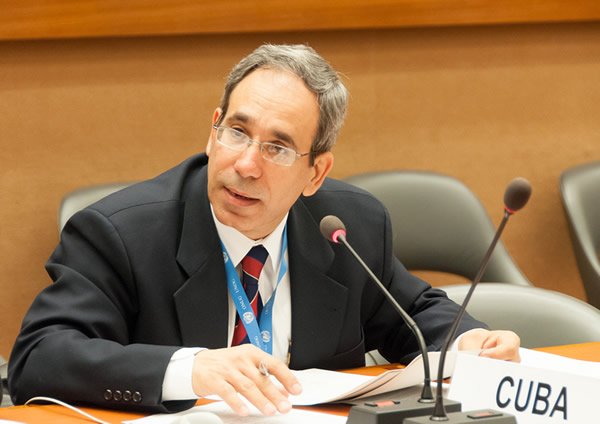Cuba’s ratification of the São Paulo Round of the Global System of Trade Preferences (GSTP) will accelerate implementation of the agreement, other GSTP participants have said.
Meeting in Geneva at the thirtieth session of the Committee of Participants on 7 May, the GSTP members welcomed Cuba's ratification of the São Paulo Protocol.
The GSTP is a preferential trade agreement that is intended to boost trade between developing countries. It first entered into force in 1989, and is administered by UNCTAD. Signatory countries to the latest pact, namely the São Paulo Round Protocol, agree to offer each other, once sufficient ratifications are obtained, preferential tariff treatment in regard to their intra-group trade in goods.
In January 2013, Cuba notified UNCTAD of the completion of its ratification process, and submitted the instrument of ratification. Cuba is the third signatory to the São Paulo Round Protocol to complete ratification procedures. The other two signatories to do so are India and Malaysia. According to the São Paulo Round Protocol, the ratification of at least four signatories is required in order for it to enter into force. That is to say, the ratification of one more country will bring tariff-reduction commitments made during the Round into effective application among the signatories concerned.
Endorsing the GSTP agreement, a representative of Cuba said that the country had made significant efforts to deliver on ratification of the Protocol, as it attached the utmost importance to the Protocol as an instrument for enhancing South-South trade. The official said that Cuba invited other signatories that had yet to ratify to follow suit. Other participants at the meeting congratulated Cuba on its achievement, saying that it was a major step towards early implementation of the São Paulo Round results.
The São Paulo Round Protocol embodies the results of trade negotiations conducted under the Third Round of GSTP negotiations launched in São Paulo, Brazil, in 2004, on the margins of the UNCTAD XI quadrennial conference. The Round was concluded at a GSTP ministerial meeting held in Foz do Iguaçu, Brazil, on 15 December 2010. Twenty-two of the 43 GSTP parties participated in the Round, and 8 parties (or 11 countries, if members of the MERCOSUR group - Argentina, Brazil, Paraguay and Uruguay - are counted separately) exchanged tariff concessions among themselves by adopting the Protocol. The signatories are MERCOSUR, the Republic of Korea, India, Indonesia, Malaysia, Egypt, Morocco and Cuba.
The São Paulo Round signatories have agreed to reduce their applied tariffs by 20 per cent on at least 70 per cent of products to which duties are applied. Tariff concessions exchanged cumulatively under the pact cover some 47,000 tariff lines. Effective implementation of these commitments, once the Protocol enters into force, is expected to bring significant commercial benefits. Cuba's ratification brings the signatories closer to this eventuality.
The Committee of Participants is the governing body established under the GSTP agreement. It is composed of all 43 parties to the GSTP agreement. The Committee is chaired by Wafaa Bassim, Ambassador of Egypt to the United Nations and other specialized agencies in Switzerland, and is serviced by the UNCTAD secretariat through its Division on International Trade in Goods and Services, and Commodities.

